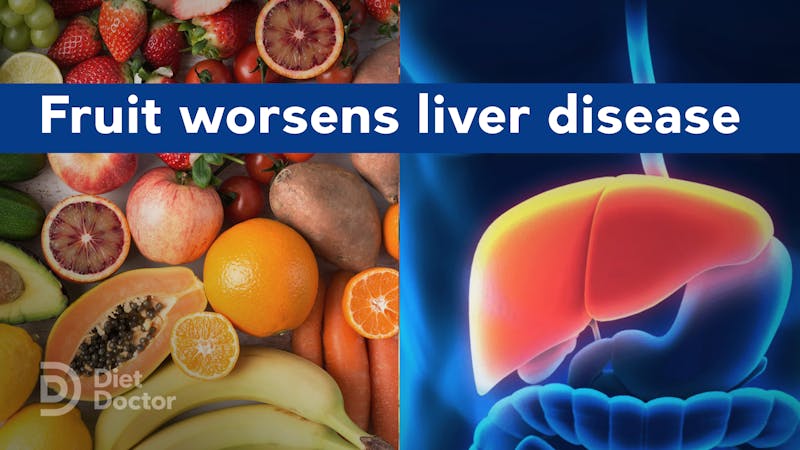US metabolic health worsens – again
Most adults in the US have poor metabolic health and the trend line over the last two decades is getting worse and worse.
A new study, that followed more than 55,000 Americans between 1999 and 2018, reports that only 6.8% had optimal metabolic health.
That means that 93% instead had at least two or more markers of metabolic dysfunction such as unhealthy measurements of blood sugar, body fat, waist sizes, blood pressure, blood lipids, or body mass indexes.
“File this [report] under the header of pretty depressing news,” said Dr. Bret Scher, the medical director of Diet Doctor, who analyzes the report in his DDNews video. “It is hard to imagine that metabolic health in the United States could get even worse, but it is.”
The report was published in the July issue of the Journal of the American College of Cardiology. It represents another installment from the long-running National Health and Nutrition Examination Survey (NHANES) program of studies.
Initiated in the 1960s, and adopted as an annual government survey in 1999, NHANES is the largest and most influential nutrition and health study in the US. It is unique in that it includes personal interviews, physical examinations, and lab tests.
Journal of the American College of Cardiology: Trends and disparities in cardiometabolic, health among us adults 1999 to 2018
The current study was a retrospective analysis (which means looking back over the data) of the trends in the proportion of adults with optimal, intermediate, and poor cardiometabolic health between 1999 and 2018. By 2018, less than 7% were in the optimal group.
The biggest decrease in optimal metabolic health over the years was among people who identified as Mexican American or non-Hispanic Blacks. Those with lower levels of education also had worse trend lines, with only 5% having optimal metabolic health.
But notes Dr. Scher, among those with higher levels of education, only 10% had optimal metabolic health. “It was better, but it is still really poor!”
Dr. Scher, a cardiologist and lipid specialist, notes that in addition to blood sugar, blood, pressure, and weight, the study looked at total cholesterol to HDL ratio but did not include participants’ triglycerides. The total cholesterol to HDL ratio was the only marker that improved over the study’s timeline. But the takeaway for Dr. Scher is that ”the focus on lowering LDL” with statins may have improved the total cholesterol to HDL ratio, but it has not improved metabolic health.
“Cleary what [mainstream medicine] has been doing is not working, focusing on LDL, focusing on low fat, counting your calories and exercising more — it has not been working. We need to do this better”, he says, which is the goal of Diet Doctor — to help people lose weight and improve their metabolic health.
Does eating more fruit help improve metabolic health? Maybe not. In a second DD News Video, Dr. Scher discusses a recent randomized controlled study that finds, for those with the metabolic condition of fatty liver disease, eating more fruit may actually worsen the condition.
The study randomized 80 non-obese patients with nonalcoholic fatty liver disease (NAFLD) to one of two groups, those who ate fewer than two servings of fruit a day and those who ate more than four. It followed them for six months and threw out the data on those who did not comply with either of the two diets.
Those eating more fruit tended to eat about seven servings of fruit a day, while those eating less fruit tended to eat one serving or less.
The study followed the liver enzymes of both groups and found, over the six months, the high-fruit-eating group saw their liver enzymes significantly worsen while the low-fruit-eating group had theirs improve.
However, Dr. Scher notes that those in the fruit-eating group also ate more overall calories and gained weight during the study. That makes it difficult to claim the worsening liver function was due to fruit-eating alone.
Dr. Scher notes that the study cannot show that fruit is “dangerous,” but “what I would also say is, this clearly shows that fruit doesn’t have this halo around it that gives it a free pass” when it comes to nonalcoholic fatty liver disease.
Scandinavian Journal of Gastroenterology: The effect of fruit-rich diet on liver biomarkers insulin resistance and lipid profile in patients with nonalcoholic fatty liver disease, a randomized clinical trial
Each week, Dr. Scher creates two or three videos that review relevant or interesting scientific studies in the fields of nutrition, exercise, health, or disease and carefully analyzes the researchers’ methods and findings. In doing so, he helps you better understand how to judge the quality of various research papers and make informed decisions about your own health and wellness.
You can find more of Dr. Scher’s news videos on the Diet Doctor Youtube channel. Subscribe to the feed so that you don’t miss any of his videos.
Or you can get more information about how to do a ketogenic diet to see if it is right for you.



